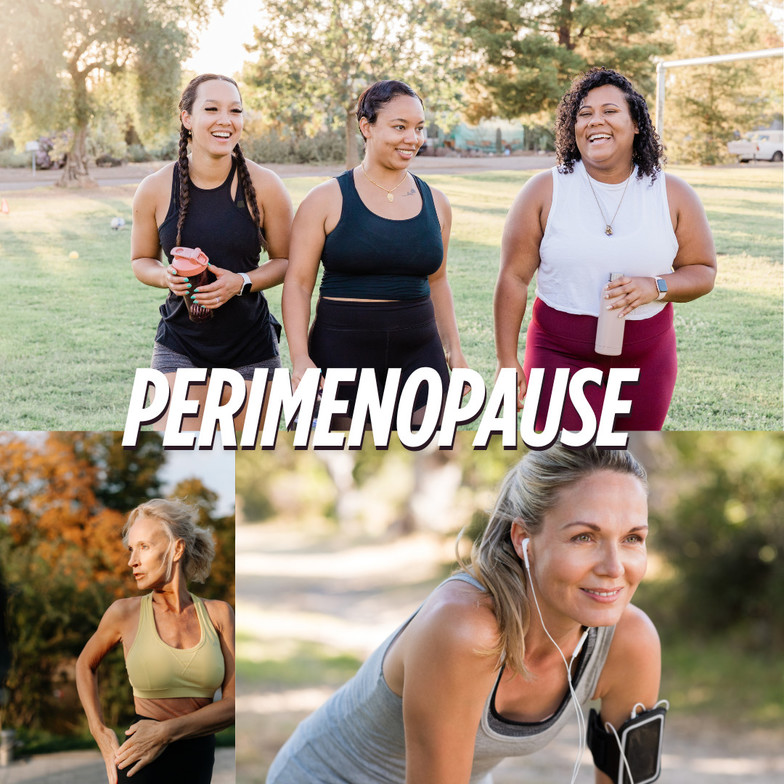
Perimenopause marks the years leading up to menopause when hormonal fluctuations begin to shift. You may notice changes in your menstrual cycle, mood swings, sleep patterns, or joint stiffness. Understanding what’s happening in your body empowers you to take proactive steps—like keeping active—to ease symptoms and preserve quality of life.
Why Movement Matters During Perimenopause
Regular physical activity helps counter common perimenopausal challenges:
-
Boosts mood by increasing endorphins and regulating stress hormones
-
Supports bone health and counters estrogen-related bone density loss
-
Improves sleep quality and reduces fatigue
-
Eases joint stiffness and maintains muscle mass
-
Enhances pelvic floor strength, reducing risk of bladder leaks
Top Exercises to Embrace
-
Strength Training Incorporate weight-bearing moves—squats, lunges, rows—2–3 times weekly. Building lean muscle helps offset the metabolic slowdown that can accompany hormonal changes.
-
Pelvic Floor Work Gentle kegel routines and guided pelvic floor physiotherapy keep supporting muscles strong, aiding bladder control and sexual health.
-
Cardiovascular Movement Aim for 150 minutes of moderate cardio weekly—brisk walking, cycling, swimming, or dance. Heart-pumping sessions bolster cardiovascular health and fend off weight gain.
-
Flexibility and Mind–Body Practices Yoga, Pilates, and tai chi foster flexibility, balance, and stress relief. They also teach breathing techniques that soothe hot flashes and anxiety.
Practical Tips for Success
-
Start slow and progress gradually to avoid injury.
-
Schedule workouts like appointments to build consistency.
-
Listen to your body—modify intensity on tougher days.
-
Include a friend or group class for accountability and social support.
-
Track your progress in a journal or fitness app to celebrate small wins.
When to Seek Professional Guidance
If you experience persistent pelvic pain, severe joint discomfort, or worry about hormonal imbalances, consulting a women’s health physiotherapist can make all the difference. Tailored assessments ensure safe exercise plans, targeted pelvic floor rehabilitation, and strategies to manage aches, posture changes, or balance issues.
ProActive Physiotherapy: Your Partner in Perimenopause
At ProActive Physiotherapy, we specialize in women’s health across all life stages. Our team in West Kelowna and Peachland offers:
-
Comprehensive movement assessments
-
Personalized exercise prescriptions
-
Pelvic floor rehabilitation and education
-
Clinical Pilates and strength-training classes
Book your perimenopause wellness plan today and discover how staying active can transform your journey.
Visit our website or call 778-755-6688 to reserve your session.
Beyond Movement: Lifestyle Strategies for Perimenopause
Nutrition, sleep hygiene, and stress management amplify the benefits of exercise:
-
Prioritize calcium-rich foods, lean proteins, and omega-3s to support bones and mood.
-
Establish a calming bedtime routine and limit evening screen time for deeper rest.
-
Practice mindfulness, journaling, or guided relaxation to ease hormonal anxiety.
Reach out—let’s craft a holistic plan that keeps you thriving.



